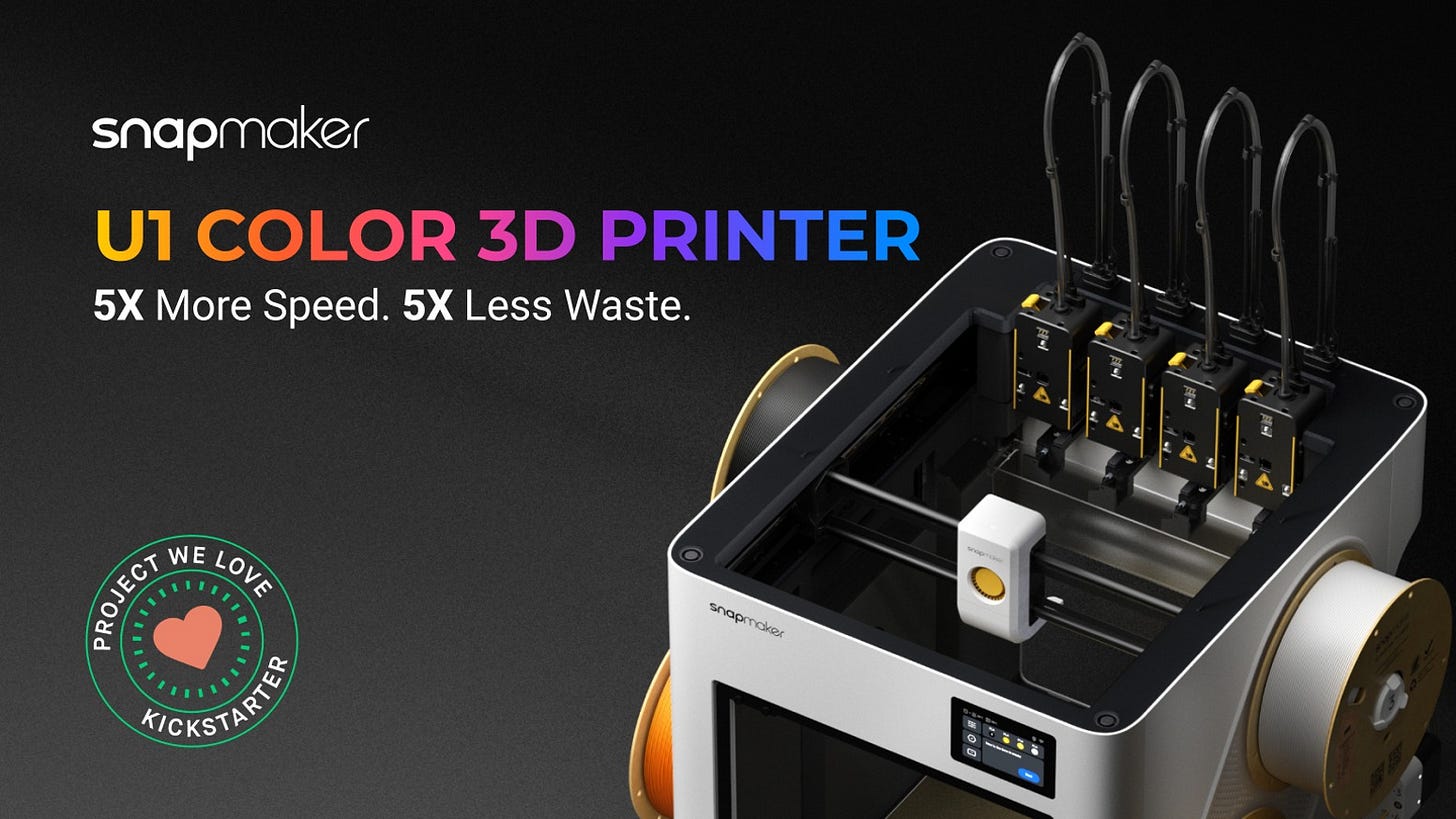China’s AI hardware playbook: measurable gains, record campaigns
Kickstarter becomes a validation rig as Snapmaker, Rokid, and Anker convert specs into dollars and force rivals to respond.
Snapmaker U1 raised $20.6 million from 20,680 backers, becoming Kickstarter’s most-funded 3D printer ever.
The company claims its four-head tool-changer cuts waste to 20 percent of conventional multi-color printing.
Rokid Glasses secured $3.61 million in 45 days, setting a global XR crowdfunding record.
Smart ring market estimates for 2024 range from $340 million to $4.46 billion across research firms.
Chinese hardware makers use Kickstarter as market validation, with $400,000 confirming commercial viability.
Shenzhen-based Snapmaker triggered traffic surges on Kickstarter when its U1 color 3D printer launched in August 2025. The campaign reached $2 million in 12 minutes and ultimately raised $20.6 million from 20,680 backers by its September 30 close, eclipsing AnkerMake’s 2022 record of $8.8 million.
Tool-changer economics challenge incumbent designs
The U1 employs a four-head SnapSwap system using steel-ball kinematic couplings that swap print heads in five seconds without screws or magnets, eliminating the filament purging required when a single nozzle switches between colors.
Snapmaker states this design reduces waste to approximately 20 percent of conventional multi-color printing methods, though shipping units scheduled for late 2025 will provide the first independent validation opportunities.
Early-bird pricing started at $749, with standard units at $849, undercutting professional tool-changing systems that typically exceed $3,000.
Beta testers presented prototypes at Maker Faire Hannover and PrintedHub in Germany before launch, generating pre-campaign interest. Polymaker became the first third-party filament supplier to receive officially supported profiles.
Competitor responses followed quickly.
Bambu Lab announced its H2C model with Vortek tool-changing on August 27, 2025, one hour after unveiling a different printer, pledging year-end delivery.
AtomForm, backed by robotic mower company MOVA, announced plans for its Palette 300 featuring 12 print heads at a $1,499 starting price, though no Kickstarter launch date has been confirmed.
Rokid sets XR crowdfunding benchmark
Rokid Glasses closed its Kickstarter campaign on October 10, 2025, with $3,613,470 from 5,000-plus backers over 45 days, the highest total for any XR device on the platform. The campaign crossed $1 million within four days.
The 49-gram glasses use Qualcomm’s AR1 platform with dual Micro LED wave guide displays and a 12-megapixel Sony camera. Core features include real-time multilingual translation, live transcription, AR navigation overlays, and hands-free video recording.
The open SDK supports ChatGPT, Gemini, Google Maps, and Microsoft Translator, contrasting with Meta’s proprietary ecosystem for Ray-Ban smart glasses.
Rokid reports operating the largest XR developer community in China with over 15,000 developers and 5,000 corporate partners. The company aims to engage 1,000-plus overseas developers by year-end. Early-backer pricing was $479 against a $599 retail target.



